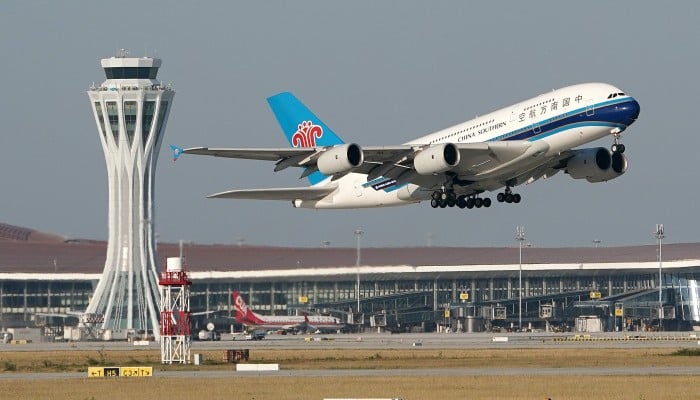In a landmark move poised to transform the economic landscape of Benue State, the government has unveiled plans to construct a modern civil airport complete with international, domestic, and cargo terminals, as well as a dedicated export-import processing zone along the Makurdi–Gboko Road. The ambitious project, formally disclosed on Friday by the Commissioner for Lands and Survey, Rev. Dr. Frederick Ikyaan, signals a new era of infrastructure and trade development for the state, popularly known as the “Food Basket of the Nation.”
Rev. Dr. Ikyaan made the disclosure during a consultative meeting with traditional rulers from Guma, Gboko, Gwer, and Tarka Local Government Areas (LGAs). According to him, the airport will be located just after Agasha Junction, while the proposed processing zone will span about 100 hectares on the opposite side of the road. He further noted that the government has completed the land survey and that Governor Hyacinth Iormem Alia has directed the immediate commencement of preliminary work on the project.
“His Excellency has given firm instructions that this project should not just remain on paper. Survey work has been concluded, and the necessary technical and administrative frameworks are already in motion. Our people deserve world-class infrastructure that will open Benue to the world,” Ikyaan stated.
Strategic Importance of the Project
1. Boosting Connectivity
The proposed airport is envisioned to feature three integrated terminals:
International terminal: To handle regional and intercontinental flights, thereby linking Benue with global destinations.
Domestic terminal: To facilitate efficient travel across Nigeria, connecting Makurdi to key commercial cities such as Lagos, Abuja, Kano, and Port Harcourt.
Cargo terminal: Dedicated to freight and logistics, designed to accelerate the export of agricultural produce and other commodities from Benue to international markets.
2. Export-Import Processing Zone
The establishment of an export-import processing zone adjacent to the airport is expected to drive value addition in agriculture, agro-allied industries, and manufacturing. By situating the zone close to an airport with cargo facilities, the government aims to shorten supply chains, reduce wastage, and attract both domestic and foreign direct investment.
“This zone will not only serve as a hub for processing agricultural products but also as a magnet for investors who are looking at Nigeria’s growing agribusiness potential,” Ikyaan explained.
Engagement with Traditional Rulers
One of the critical highlights of Friday’s meeting was the active involvement of traditional rulers whose domains will host or be affected by the project.
Ter Gwer, Chief Dominic Akpe, and Ter Gboko, Chief Gabriel Shosom, welcomed the development warmly but also stressed the importance of fair and adequate compensation for affected communities.
Chief Akpe stated:
“Our people are happy to see such progress coming to our land. However, those who will give up their farms or ancestral lands must be adequately compensated. Development should not come at the cost of injustice.”
Similarly, Chief Shosom described the airport and processing zone as “a landmark project” that would reposition Benue for growth while urging continued dialogue between government and local communities.
The traditional rulers pledged their cooperation, promising to sensitize their people and prevent land disputes that might delay the project.
The meeting was attended by senior officials, including: Matthias Antor, Special Adviser to the Governor on Lands, Prof. Daniel Amine, Director-General of the Benue Geographic Information System (BEN-GIS), Local government representatives and technocrats from the Ministry of Lands and Survey.
Their presence underscored the multi-agency collaboration required to execute a project of this scale.
Potential Benefits
1. Economic Transformation
The airport is expected to serve as a springboard for economic revitalization. Benue, with its fertile soils and vast agricultural potential, stands to gain immensely by exporting fresh produce, yams, rice, soybeans, oranges, and livestock products directly to national and international markets.
Agricultural exports could create new jobs in farming, logistics, warehousing, and air freight services. With the export-import zone adding processing capacity, farmers and agribusinesses will capture more value rather than selling raw commodities.
2. Investment and Trade Hub
By offering facilities for international flights and streamlined logistics, Benue will become more attractive to investors. The project is positioned to create a ripple effect across multiple sectors including hospitality, construction, transport, and ICT.
“The multiplier effect is clear. When airports emerge, cities grow around them, hotels spring up, conference centers develop, and industries relocate to take advantage of connectivity. That is the trajectory Benue is setting itself on,” said Prof. Amine.
3. Infrastructure Development
Construction of the airport will inevitably lead to improved road networks, power supply, and communication systems. The Makurdi–Gboko Road itself is expected to witness massive upgrading to accommodate increased vehicular movement.
4. Employment Opportunities
From the construction phase to long-term operation, the project will generate thousands of direct and indirect jobs for engineers, construction workers, pilots, ground staff, customs officers, security personnel, and traders.
Challenges and Concerns
While optimism is high, stakeholders recognize several challenges:
Compensation for Land Acquisition: Communities have insisted on fairness and transparency in the compensation process. Poor handling could trigger disputes.
Funding: Large-scale airport projects require significant financial outlays. Securing sustainable funding, possibly through public-private partnerships (PPP), will be critical.
Maintenance and Sustainability: Nigeria has seen several under-utilized or struggling airports. Ensuring that Benue’s airport does not fall into disuse will require robust planning and sustained demand.
Environmental and Social Impact: Large construction projects affect ecosystems and livelihoods. Adequate environmental impact assessments (EIAs) will be necessary.
Historical Context
Makurdi currently hosts a Nigerian Air Force (NAF) base with limited civil aviation functions. For decades, residents and businesses have clamored for a fully functional civil airport to unlock Benue’s economic potential. Previous administrations mooted the idea, but none advanced it to the point of land surveys and concrete planning.
Governor Alia’s administration appears determined to break that cycle. By engaging traditional rulers early and setting a clear vision that combines passenger travel with cargo and processing facilities, the government has outlined a holistic plan rather than a piecemeal project.
Reactions from the Public
Across social media and community forums, reactions have been largely positive. Many residents expressed excitement at the prospect of reduced travel times and improved access to markets. Farmers in Gboko and Gwer LGAs were particularly enthusiastic about the cargo terminal, which they believe will cut losses from perishable goods.
Others, however, voiced caution, citing Nigeria’s track record of abandoned projects. “We have seen announcements before. What we want is action. Let this not become another unfulfilled promise,” Iorkyaa Orafa, a Makurdi-based businessman commented.
The Broader Nigerian Aviation Landscape
Benue’s announcement comes at a time when Nigeria is investing in upgrading its aviation sector. Federal initiatives to expand airport infrastructure in states such as Ekiti, Anambra, and Kebbi reflect growing recognition of aviation as a driver of regional development.
Experts argue that if properly managed, Benue’s airport could complement Abuja’s Nnamdi Azikiwe International Airport by serving as a feeder hub, particularly for agro-exports.
Governor Hyacinth Alia’s directive for immediate commencement of work is a signal that this is not merely an aspirational plan. The coming months will determine how quickly contracts are awarded, ground is broken, and construction commences.
For Benue citizens, especially those in Makurdi and Gboko, the promise of a modern airport and export-import processing zone represents more than infrastructure; it symbolizes the possibility of a new economic dawn.
As Ter Gwer aptly summarized:
“We stand at the beginning of something historic. If this project succeeds, our children and grandchildren will remember it as the turning point for Benue.”
The proposed civil airport and export-import processing zone along Makurdi–Gboko Road represent a bold vision for Benue State. By integrating passenger travel with cargo handling and industrial processing, the government is positioning the state as a true gateway for agricultural exports and investment.
While challenges remain particularly around compensation, funding, and sustainability the broad support from traditional rulers, government agencies, and citizens reflects a collective desire to see the project succeed.
If executed with transparency, efficiency, and community involvement, this project could redefine Benue’s role in Nigeria’s economic map and cement its status as not just the “Food Basket of the Nation,” but also a hub for trade, logistics, and global connectivity.












